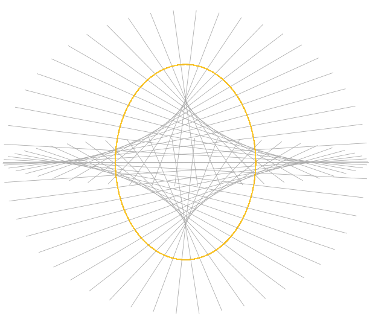8 Perspectives on Deep Inner Work –
The Path for Personal and Professional Growth
The Path for Personal and Professional Growth
Part 4 of 8: Healing Psychological Wounding & the Work of Grief
October 26, 2022
This is part four of an eight-part series on deep inner work at Evolute Institute. For the other parts check out:
- Article 1: Increasing our inner freedom
- Article 2: Moving into higher mindsets
- Article 3: From disconnection to re-connection & addressing trauma
- Article 4: Healing Psychological Wounding and the Work of Grief
- Article 5: Overcoming Cultural Conditioning
- Article 6: Increasing Psychological Flexibility
- Article 7: Fostering Integration through and beyond psychedelic work
- Article 8: Acquiring Wisdom for a Good Life
The epidemic of not being enough & not belonging
Even if we have not experienced severe or traumatising “overwhelm” in our past (see our previous article on trauma), we can still suffer from psychological “wounds” that were inflicted to us in our private or professional lives. For instance, many individuals that have evolved to professional “high-performers”, often holding high-ranking positions in organizations, can relate to the story of having grown up with exceedingly demanding or critical parents or have experienced early rejection from their social environment, for example due to ethnic differences or sexual orientation. No matter what they did as children, they “could have done better” or “should have been different”. This perpetual, latent or overt critical rejection often makes the child feel like “not being right”, “not being good enough” or “not belonging”. In order to avoid losing the love of our caregivers or peers, children might compensate by being “the good boy or girl”, “perfect” in some dimension like external beauty or academic achievement or “invulnerable” – at the immense cost of potentially losing their true sense of self and their capacity of authentic relating.
Over the long run, fulfilling and living by expectations that are not ours leads to a sense of disconnection from self, and frequently pushes us onto a personal and professional path that feels neither authentic nor meaningful. We might be highly accomplished but grow more and more dissatisfied with our personal and professional lives.
Paradoxically, people might be suffering even though from the outside things might be looking great – a well-paying job, fancy title, a handsome romantic partner and a beautiful apartment in a trendy area. And despite feeling that all these “achievements” do not really bring fulfillment, people might double down on earning even more money, getting even fancier titles, finding even a more attractive and presentable partner in the hope that one day they will finally get to the point of inner peace. Alas, deep inside the realisation dawns: external ornaments of success can never fill the aching void of an old insecurity or hurt deep within.
Photo by marcos mayer on Unsplash.
External ornaments of success can never fill the aching void of an insecurity stemming from deep within.
Mistrusting the world: the micro-manager at work
Another frequently encountered example from the world of work is the following: many of us have made experience with a colleague or boss who had trouble trusting their colleagues at the job. Their lack of trust and tendency to control everything and everyone around them turned them into a micro-manager, unable to delegate effectively. On the surface, this might look like a typical “managerial” issue that can be solved by sending that person to a classical skills-seminar about “how to lead people and delegate”. However, very likely, this kind of seminar will not address the root causes of this symptom of micro-managing. In fact, the root of the issue might relate to the personal biographical domain where that manager learnt that there are good reasons for not trusting people. Healing the wounding of trust violations through inner work might then restore their sense of trusting themselves, others, the world, and life. In turn, this renewed sense of connectedness might lead to a change in behavior at their job.
Embracing our hurt: the five gates of grief
On a more fundamental level, there is a hurt that comes from the slings and arrows of being alive, of being human. Being human means being vulnerable and mortal and every one of us ultimately has to come to terms with this reality, even if we tend to be and like to get distracted from these topic: work is a really good way, so are drugs, TV and scrolling through our preferred social media feed ;).
The domain of awareness of our fragility and mortality, of our existential hurt and ever-present possibility of loss is the area of grief work where Evolute Institute’s facilitator Patrick Liebl is our expert and guide. He pointed us to psychotherapist Francis Weller[1], whose beautiful framing informs our grief work, speaks of “the five gates of grief”:
The 1st gate of grief is that simply, everything we love, we will lose.
- The 2nd gate of grief are the places that have not known love.
- The 3rd gate of grief are the sorrows of the world.
- The 4th gate of grief is what we expected and did not receive.
- The 5th gate is ancestral grief.

Photo by Jan Gottweiss on Unsplash
Unfortunately, dealing with those painful aspects of life and thus with our rightful grief is an often-neglected issue in our “modern” society. Both collectively and individually, we try to avoid looking at our unpleasant shadow aspects and difficult feelings. But if we do not touch the wells of our grief and process them properly, we walk through life with open wounds and might get bogged down in our unresolved pain at some point.
In most Western cultures, grief has no place in the public sphere. Dealing with grief is put onto the individual while it should ideally also find expression in community and shared rituals. We prefer to see happy people who are living their best life, always celebrating achievements but never mourning loss. The most certain realities of our existence, that we all, without exception, will at some point suffer and eventually die, are covered up by superficial interactions and fake smiles. There is a profound lack of knowing and a lot of shame involved in openly addressing these topics. Just think about Halloween, Dia De Los Muertos, All Saints Day and other holidays that are just around the corner. They all have their origin in century old traditions of honouring and mourning the dead. But today, instead of really turning towards our grief for those we lost, we celebrate parties or hide behind shallow customs where grief is understood as a duty or virtue but rarely as an emotion that is truly experienced. The grief for our own mortality shares the same fate. While the Buddhists spend their whole life preparing for death, we spend ours running away from it. And yet we all know that there is no escape from death or grief.
On an individual level, we might also think we can master the task of healing and inner growth intellectually, through cognitive understanding, where the only thing required from us it to “think through” concepts and abstract ideas. But this evasion of really feeling ourselves and confronting the inner pain will not get us very far. This evasion to feel the rawness of our unpleasant emotions also comes with unintended consequences. As William Blake wrote:
Our capacity to experience profound joy depends on our willingness to connect to deep sorrow.
Working with grief: holding sorrow close to our hearts
Irrespective of the applied technique, working with grief involves holding sorrow close to our hearts – deeply, purely, attentively. In its spiritual dimension, it demands from us to learn the “art of loss”, as poet John O’Donohue put it, to accept and embrace the raw nature of this life’s reality and the loss of aliveness and joy that resulted from it. We need to nurture our willingness to endure what the Taoists call “the ten thousand joys and the ten thousand sorrows” of life. It requires we make ourselves vulnerable and open up to our own feelings – some of which have been patiently waiting for us in the depths of our being for a long, long time. To accept tears rolling down our cheeks as a tribute to the heart-wrenching sorrow.
Poet Khalil Gibran eloquently wrote about the necessity and beauty of pain in the human condition:
Your pain is the breaking of the shell that encloses your understanding.
Even as the stone of the fruit must break, that its heart may stand in the sun, so must you know pain.
And could you keep your heart in wonder at the daily miracles of your life your pain would not seem less wondrous than your joy;
And you would accept the seasons of your heart, even as you have always accepted the seasons that pass over your fields.
And you would watch with serenity through the winters of your grief. Mourning is a chance to get more intimate with ourselves, and in turn, it allows us to become more connected with our surroundings, and with the people we love. To allow ourselves to be held in the loving arms of others and to realize that there is a universal dimension in our grief that is shared with every human being. As such, working with grief can be regarded as a life-long practice to be perpetually deepened.

Photo by Priscilla Du Preez on Unsplash.
And maybe the best way to start such a practice is by first connecting to the grief of others. If our own grief is still too overwhelming or if we completely lost touch with it, then we can practice by showing up for others who experience acute grief. To not turn away from someone in grief and instead being present with them, even though we don’t know what to say or what to do, might be the greatest act of compassion we can provide.
While there are many therapeutic forms to work with grief, certain types of bodywork (e.g. Hakomi), breathwork and psychedelic work have proven to be exceptionally effective in overcoming our initial resistance and connecting directly to our sorrow. By practicing techniques to become aware of our emotions, we can successively create and hold the inner space to invite and sit with grief and, eventually, to let it soften and mature our hearts. Mindfulness practices of compassion and loving-kindness are key on this journey to the deeper layers of ourselves and the world.

Photo by Cristian Palmer on Unsplash.
Having briefly outlined the importance of skillfully relating to our grief as a necessary part of any deep personal transformation, at Evolute Institute we deem it as an integral component to offer spaces for grief work. Depending on what the client needs, grief work can happen in 1:1 coaching with our end of life companion and grief expert Patrick Liebl or during one of our retreat programs like EvoLEAD. In our work, we have accompanied people in what Francis Weller calls three fundamental things we all have to deal with:
1. to befriend our own mortality,
2. to befriend our own darkness, and
3. to learn to let go.
This perspective of healing psychological wounding through grief work is part of how we see deep inner work at Evolute Institute. Leadership means to deeply acknowledge, feel, and embrace the vulnerability of our human nature.
This 4th perspective is, however, not the final perspective on inner work. In the next article we look into a 5th perspective on deep inner work: overcoming cultural conditioning:
- Article 5: Overcoming Cultural Conditioning
In case you liked what you read: check out also the previous articles of this series:
- Article 1: Deep inner work: How to increase inner freedom
- Article 2: Deep inner work: Moving into higher mindsets
- Article 3: From disconnection to re-connection & addressing trauma
And if you want to be part of a pioneering group of entrepreneurs, organisational leaders & decision-makers, change-makers and visionaries who embark on this journey of intentional inner work with altered states of consciousness, check out one of our retreat programs or schedule an exploratory call. We’d be glad to get to know you.
Please bear in mind that we do not make clinical claims with our programs, do not provide medical advise and you should always seek assistance from a medical professional before making any decision about consuming psychedelics.
Christopher Kabakis
Contributing Authors
Dmitrij Achelrod PhD
Christopher Kabakis
Contributing Authors
Dmitrij Achelrod PhD
Subscribe to the insights newsletter
At most, once every 2 weeks.


Images
Article Cover: Photo by Aron Visuals on Unsplash.
References:
[1] Francis Weller (2015): The Wild Edge of Sorrow: Rituals of Renewal and the Sacred Work of Grief. North Atlantic Books.

